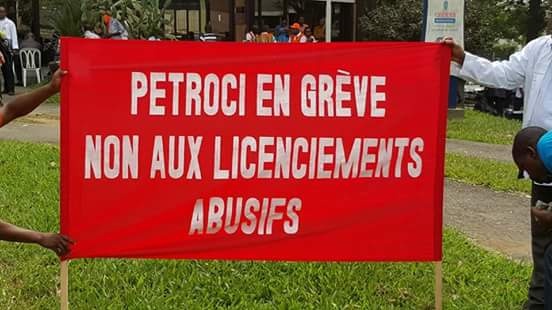2 March, 2016SYNTEPCI, an IndustriALL Global Union affiliate in Ivory Coast, is fighting to secure legal rights for 48 workers laid off by state-owned oil company Petroci.
Fifty of Petroci’s 600 workers were laid off illegally in January when the company failed to follow the necessary procedures in the case of terminations for economic reasons.
The company should have consulted with the union, staff representatives and relevant authorities about the redundancies and given clear reasons to justify the lay-offs, among other measures.
Following a series of 72-hour strikes last month, the union succeeded in reinstating a pregnant worker and a staff representative who were protected under the country’s labour laws.
However, Petroci is again failing to meet legal requirements in providing proper compensation for the remaining 48 workers. The company has offered damages and compensation that are below the levels required under the labour code .
Jeremie Wondje, general secretary of SYNTEPCI, said:
“The director general of Petroci has recognized that the company did not respect the law and therefore must pay damages. However, once again Petroci is failing to comply with the law by offering levels of compensation that are unacceptable.”
“The silence from the authorities is worrying, especially because the law is very clear in what it demands from each party, but we are more worried that the director general of Petroci has refused our offer of a social plan for the retrenched workers,” he added.
“We are waiting for a meeting with the ministry of labour hoping that things will develop positively. Further strike action has been suspended but the fight continues,” said Wondje.
Jyrki Raina, general secretary of IndustriALL, said:
“Petroci is not above the law. We call on Petroci to respect national legislation and, above all, workers who have a right to be fairly compensated for losing their jobs. This is not the behaviour to be expected from a state-owned company.”
